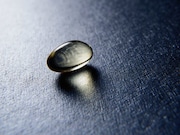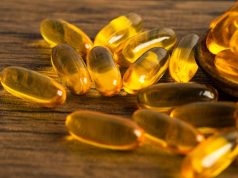4 g daily EPA+DHA or EPA only effective and safe for use as monotherapy or in combination
MONDAY, Aug. 19, 2019 (HealthDay News) — After any underlying causes are addressed and diet and lifestyle strategies are implemented, prescription omega-3 fatty acids (n-3 FAs), eicosapentaenoic acid (EPA) and docosahexaenoic acid (DHA) or EPA only, at a dose of 4 g/day are effective for lowering triglycerides as monotherapy or in combination with other agents, according to an American Heart Association science advisory published online Aug. 19 in Circulation.
Ann C. Skulas-Ray, Ph.D., from the University of Arizona in Tucson, and colleagues summarized the lipid and lipoprotein effects resulting from pharmacological doses of n-3 FAs (>3 g EPA+DHA) on the basis of new scientific data.
The researchers found that treatment of very high triglycerides with 4 g/day EPA+DHA reduced triglycerides by ≥30 percent, with simultaneous increases in low-density lipoprotein cholesterol; low-density lipoprotein cholesterol was not raised with EPA only. n-3 FAs with EPA+DHA or EPA only seemed about comparable for triglyceride lowering when used to treat hypertriglyceridemia; when used as monotherapy or in combination with a statin, n-3 FAs with EPA+DHA or EPA did not increase low-density lipoprotein cholesterol. Non-high-density lipoprotein cholesterol and apolipoprotein B were modestly decreased in the largest trials of 4 g/day prescription n-3 FA. In a randomized trial of EPA only in high-risk patients treated with a statin, use of n-3 FA (4 g/day) resulted in a 25 percent reduction in major adverse cardiovascular events.
“We concluded that treatment with 4 grams daily of any of the available prescription choices is effective and can be used safely in conjunction with statin medicines that lower cholesterol,” Skulas-Ray said in a statement.
Several authors disclosed financial ties to the pharmaceutical and nutrition industries.
Copyright © 2019 HealthDay. All rights reserved.








